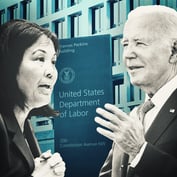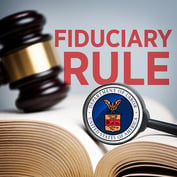What You Need to Know
- Investment advisors must fulfill the latest requirements of the Prohibited Transaction Exemption for rollovers no later than July 1.
- Advisors must conduct a retrospective review of compliance with the Impartial Conduct Standards and file a written report.
- The DOL expects advisors to use the review to find more effective ways to help ensure that advice complies with the standards.
The Labor Department’s fiduciary-rule requirement rollout continues with the fast-approaching July 1, 2023, filing date for an investment advisor’s initial retrospective review.
While we anticipate assisting many investment advisors throughout the country with their completion of this new requirement, it’s important to understand its purpose and components. For this reason, I asked my colleague Joseph Antonakakis to share his expertise in this area.
The retrospective review requirement of Prohibited Transaction Exemption 2020-02 (PTE) for rollovers is designed to assist in detecting and preventing violations of — and achieving compliance with — the Impartial Conduct Standards and the policies and procedures adopted for compliance with the PTE.
Compliance with the standards of the PTE is achieved by:
- Providing investment advice that is in the retirement investor’s best interest,
- Charging reasonable compensation,
- Avoiding materially misleading statements about the recommended investment transaction and other relevant matters,
- Seeking to obtain the best execution of the investment transaction reasonably available under the circumstances, as required by the federal securities laws; and
- Self-correcting any violation within 90 days and furnishing notification to the DOL within 30 days of the correction.
Purpose of the Review
The DOL expects advisors to use the results of the review to find more effective ways to help ensure that investment professionals are providing investment advice in accordance with the Impartial Conduct Standards and to correct any deficiencies in existing policies and procedures.
Senior executive officers, such as the investment advisor’s chief compliance officer, should carefully review the report before making the required certifications so that they can make the certifications with confidence. This ensures that the investment advisor, through an appropriate executive officer, is fully accountable for the retrospective review.
What’s Covered
The retrospective review must assess whether the investment advisor follows the best interest standard of care, receives only reasonable compensation and is satisfying the SEC’s best execution standard.








 March 03, 2023 at 12:57 PM
March 03, 2023 at 12:57 PM












 Copyright © 2024 ALM Global, LLC. All Rights Reserved.
Copyright © 2024 ALM Global, LLC. All Rights Reserved.